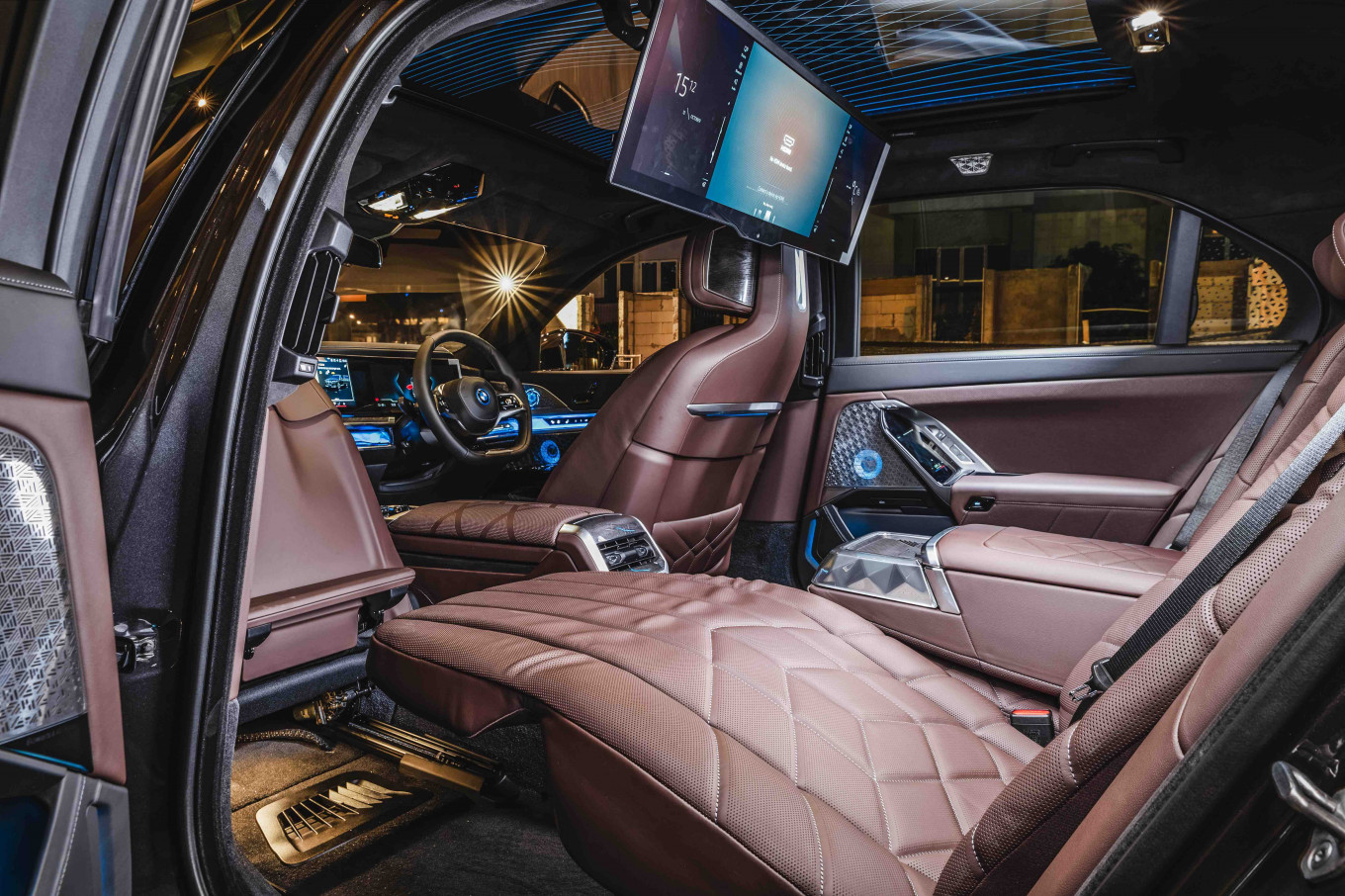Growing up with Batman, Transformers and James Bond, we were all drawn to the coolest cars on screen. As kids, we didn’t know these cars weren’t real. But for today’s younger generation, that boundary between fantasy and reality is starting to blur.
In 2024, cars equipped with the kinds of features we once saw in movies are real, and not just for superheroes. While Batman and James Bond might use advanced tech to fend off villains, some of these systems were developed to enhance everyday safety and convenience for regular drivers.
Take the automated emergency braking system (AEBS), designed to prevent rear-end collisions by detecting when a vehicle is too close. Originally invented in the 1950s, this feature became mandatory in all new cars in Japan in 2021, with similar requirements now in place across the European Union, India and the United States.
Today, AEBS is standard in cars under four years old, turning what was once a unique feature into a new safety baseline. So, what’s the next innovation destined to become standard?
Driving from the passenger seat
I remember the buzz when Tesla Motors launched the Model S in 2014, sparking excitement over autonomous driving. Social media was flooded with videos of the car driving itself, and it seemed to herald a new era in the automotive industry. After all, if planes can have autopilot, why not cars?

Thank you!
For signing up to our newsletter.
Please check your email for your newsletter subscription.
Today, various brands, from Acura to Volvo, offer similar technology at different levels of automation. This ranges from level one, where cars offer basic driver assistance, to level five, representing fully autonomous vehicles. At the highest level, these cars wouldn’t need a driver at all.
Luxury brand BMW, for instance, offers level three conditional driving automation on its 5 and 7 Series, meaning drivers can take their hands off the wheel and eyes off the road while the car is moving.
These high-tech features offer advanced protection, but they come with new security risks.
“BMW’s professional driving assistance includes adaptive cruise control, where you can set the speed, say at 100 km/h, and the car will automatically maintain it, slowing down if it detects a slower vehicle ahead,” explains Axel Julio, certified BMW Group retail trainer.
While this technology is impressive, it’s designed to assist drivers, not replace them entirely. Even with automation, drivers must stay alert and take control when needed. As with most tech, these systems are here to support us, not take over.
Fully driverless cars may be the next frontier, but in traffic-heavy Jakarta, full automation is still a distant dream.
“It’s not possible, at least not yet,” Axel says.
“With Jakarta’s traffic and motorcycles everywhere, a fully autonomous system would struggle to operate safely. Autonomous driving is only feasible on toll roads, where there are no motorbikes. On regular roads, it’s just not realistic.”
And then there’s the safety question. In 2024 alone, 473 incidents involving autonomous vehicles were reported in the US, according to Craft Law Firm. Until both our roads and our cars become more equipped for full autonomy, it’s wise to use these features responsibly.
Next-level safety
As Jakartans, we are trained to be cautious and prepare for the worst. The latest car technology has taken safety to the next level.
Consider Hyundai’s Genesis GV60, which introduced Face Connect, a facial recognition system to lock and unlock doors. A small camera beside the door handle scans the driver’s face, allowing hands-free entry. Equipped with infrared sensors, this system works even in low light, providing an added layer of security.
Not all brands have adopted face recognition, but many offer other anti-theft features. Audi’s immobilizer system, for instance, goes beyond a simple alarm; it verifies that the key used to start the car is legitimate. If it isn’t, the car blocks actions like ignition steering. Through the Audi Connect app, owners can also use the Stolen Vehicle Locator to track and recover their vehicle in case of theft.
These high-tech features offer advanced protection, but they come with new security risks. As we personalize our cars with biometric data and preferences, we’re creating more data that could be vulnerable. In February 2024, Hyundai Motor Europe fell victim to a ransomware attack that compromised 3 terabytes of data. Audi USA faced a similar breach in 2019, affecting nearly 2.74 million people.
Maybe privacy is an illusion, but it makes you wonder how our data being used, and how secure it is.
Smartphone-controlled
In the digital age, there’s one device that knows you best: your smartphone. And with today’s car apps, you can now use it to control your car’s features, from locking the doors to adjusting the temperature before you get in.
Most car brands have their own apps, such as Mopar Connect for Chrysler, Dodge, Jeep, Ram and FIAT vehicles, which lets users remotely start or stop the car, lock or unlock it and track its location.
Parking assistance has also come a long way.
“With remote 3D view, drivers can see where their car is parked,” says Axel, referring to a feature on the BMW app.
“Cameras all around the car generate images to create a bird’s-eye view.”
Other popular apps, like Hyundai’s BlueLink, mTOYOTA and Volvo Cars, provide remote access to vehicle diagnostics and basic troubleshooting. But be mindful of potential security vulnerabilities. Earlier this year, WIRED reported a bug that exposed cars from brands like Acura, Genesis, Honda and Toyota to hackers, showing that even “smart” cars are not immune to digital threats.
And while these apps offer convenience, they also require occasional software updates. In online forums, drivers share tales of frustration when updates temporarily disable features, leaving cars unable to start or unlock until the update is complete. Like any tech, car apps come with their own quirks and responsibilities.
With self-driving capabilities, facial recognition and all-in-one apps, these technologies certainly put today’s cars ahead of the curve. They may not be Batmobiles, but will these innovations eventually set a new standard in the auto industry?
Sheena Suparman is a writer for The Jakarta Post's Creative Desk. She is based in Jakarta but wishes she could be anywhere else. Usually powered by coffee and chips, she has been a proud member of the Swiftie cult since 2008.























